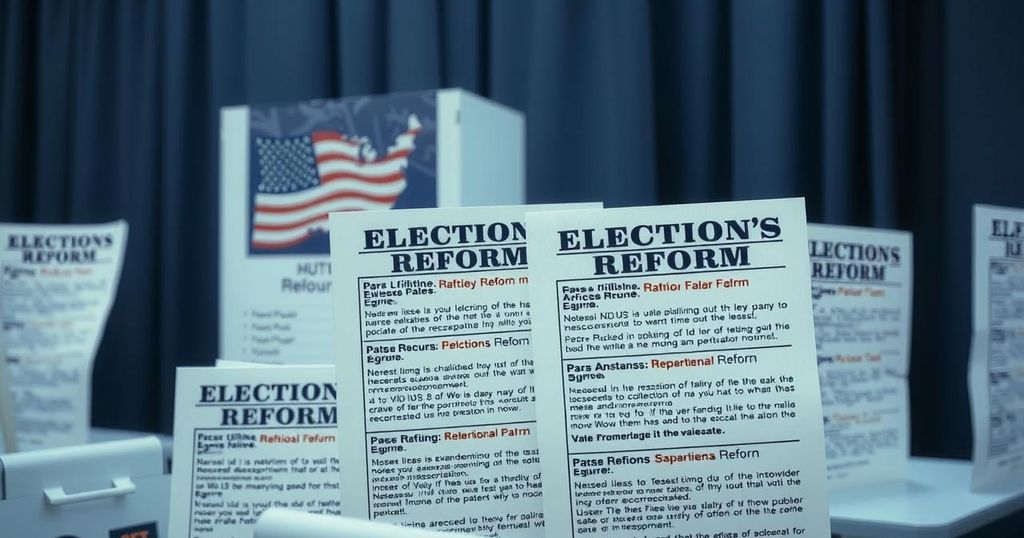Despite a $110M push for election reforms, voters in multiple states, including Arizona and Nevada, rejected measures like ranked choice voting and open primaries, revealing a preference for traditional voting methods. Advocates acknowledged a lack of readiness for such reforms, highlighting the need for grassroots support and better voter education moving forward.
In the recent elections across the United States, significant reforms aimed at changing voting methods were overwhelmingly rejected, despite strong financial backing of over $110 million from advocates. The anticipated embrace of alternatives such as ranked choice voting and open primaries failed to materialize in several states, including Arizona, Colorado, and Nevada, where voters opted to maintain traditional voting systems. John Opdycke, president of Open Primaries, admitted a lack of readiness for such sweeping reforms, stating, “It turns out, in retrospect, we weren’t yet ready for prime time.” Notably, while some jurisdictions did approve ranked choice voting, overall national trends indicate a resistance to changing established voting practices.
Advocates had hoped that momentum from recent successful implementations, like in Alaska, would translate into broader acceptance. However, Nevada voters reversed a previous decision supporting open primaries and ranked choice voting. Alaska’s attempt to repeal these reforms also narrowly failed, indicating a complex relationship among voters regarding their electoral methods. This cycle has revealed that although there are pockets of support for these reforms, substantial opposition remains.
Concerning ranked choice voting, data over 150 observed races highlighted that it seldom led to outcomes differing from traditional voting results. Only three candidates who trailed in initial votes emerged victorious following ranked count processes, suggesting limited efficacy of the system outside certain contexts. Critics raise concerns about potential confusion among voters and observable disparities in participation rates, particularly among different demographic groups.
Despite setbacks, organizations like Unite America are reevaluating strategies and considering more gradual changes through state legislatures. They must focus on grassroots efforts rather than solely relying on large campaign expenditures for reform initiatives. Without widespread public understanding and support, the future of these electoral changes remains uncertain, with advocates aware that altering the voting system requires a broad foundation of grassroots backing before formal campaigns can succeed.
As the conversations continue regarding the structures of electoral systems, it remains clear that initiatives for reforming voting practices will need a comprehensive strategy tailored to the perspectives of voters, fostering deeper engagement, and addressing issues of understanding and accessibility within differing communities.
Election reform is a progressively contentious topic in the United States, particularly in the context of enhancing electoral processes through methods such as ranked choice voting and open primaries. Advocates argue that these reforms would lead to more democratic and representative outcomes, allowing voters to express preferences for multiple candidates. However, the recent elections revealed a pronounced resistance to these changes, despite considerable financial support from reform advocates. The historical context suggests that naivete regarding voter readiness for change can lead to significant setbacks for reform movements, necessitating a reassessment of strategies and public engagement methods.
In summary, the recent election cycle has exposed a critical disconnect between reform advocates and voter sentiments regarding electoral changes in the United States. Despite significant financial backing and initial hopeful momentum for initiatives like ranked choice voting and open primaries, voters largely favored traditional voting methods. Moving forward, election reform advocates will need to recalibrate their strategies to build grassroots support and enhance public understanding of the proposed changes to succeed in future endeavors.
Original Source: abcnews.go.com







